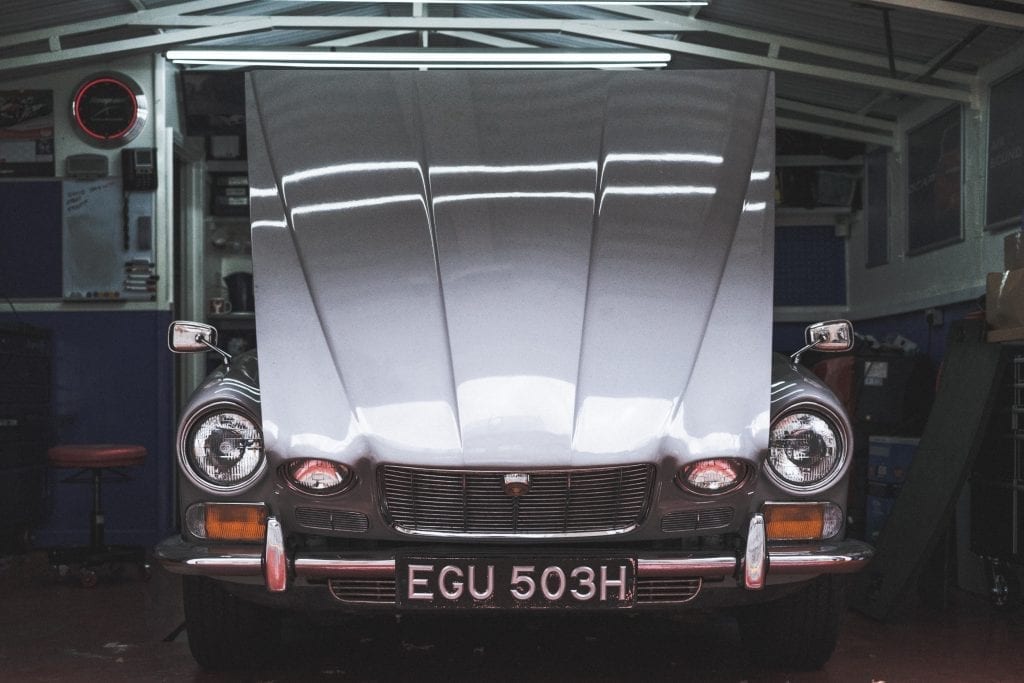Don’t Buy a Used Car Without Doing These 4 Things

Contents
Introduction
You’ve done your research, and you’ve identified the make and model of the used car you wish to purchase. But you didn’t stop there, you busy beaver. You’ve also taken a look at local inventory, and you’ve found a few vehicles in your area that are qualified candidates. There’s even one in the exact color you want.
At this point, your excitement level is probably high. There’s a rush of adrenaline that comes with knowing you’re this close to finding a car that seems like a perfect match for your needs. But don’t let those happy feelings lead to a rash decision. There are still a few final steps to take before you pull the trigger.
Here are four things you should do at this stage in your quest for a stellar used vehicle.
The List

Check the Car’s Vehicle History Report
Every used car has a history. Understanding this history is important, since it provides you with vital clues you can use to assess how the car is likely to perform in the future.
A vehicle history report tracks key aspects of a used car’s background. It shines a light on things that should be of concern to any shopper who’s in the market for a pre-owned vehicle.
Based its vehicle information number (VIN), a car’s vehicle history report is a summary of all recorded events in that specific vehicle’s life on the road thus far. This includes critical details like whether the car has ever been in a major accident or if it currently has any open recalls.
The report can also tell you if a car has ever suffered flood or hail damage, and it will offer information on how many owners it’s had over its lifetime, and where. You can also use a vehicle history report to find out if a car’s airbags have ever been deployed, if it’s been subjected to odometer rollback, or if it’s even been declared a total loss.
These are all things you definitely want to know before you fork over thousands of dollars of your hard earned cash.
So which companies provide these reports? The two leading names in the business are Carfax and AutoCheck.
Carfax provides the most comprehensive history reports available, including repair and service histories when they are available. A single report there costs $40. If you’re actively shopping for used cars, it usually makes more sense to buy one of their package deals — currently, 3 reports for $60 or 6 for $100.
AutoCheck reports may not provide quite the same level of detail; however, they are notably cheaper at $25 for a single report or $50 for 25 reports (within 21 days).
Keep in mind that if you’re shopping for a used car at a dealership, the dealership will typically give you the vehicle history report for free.
For help reading a vehicle history report, check out our article: How to Read a Vehicle History Report from CARFAX or Autocheck.

Research the Car’s Value
It’s easy to get excited about a car once its history checks out. However, don’t bust out that checkbook just yet. To ensure you’re getting a reasonable deal, you may have to do some negotiating. And the best way to prepare for this process is to make sure you have a ballpark idea of what represents a fair price for the vehicle.
A number of websites offer pricing guidance for used cars. These sites typically base their conclusions on regional and nationwide transaction data. We find that Kelley Blue Book and Edmunds — as well as Hagerty for older cars and classics — are the most reliable resources for vehicle valuation. Another up-and-comer is CarGraph, which displays a recent history of asking prices for used cars by make or model.
Keep in mind that these pricing estimates are just that: estimates. Because they are based on averages, factors like unusually low mileage, rare options or colors, or a great maintenance history will not typically be accounted for. So use these estimates as a starting point, keeping in mind that you may need to remain somewhat flexible in order to close the deal.

Take the Car for a Test Drive
To get the skinny on any car you’re seriously thinking considering, take it for test drive. Even if the pictures and description in the listing look great, a thorough test drive is necessary for you to gain firsthand impressions about the car — as well as the person selling it.
Before sliding behind the wheel, spend a few minutes inspecting the vehicle. Outside, look for things like dings, dents, mismatched tires, or rust. Inside, check all of the surfaces — seats, dashboard, carpet, headliner — for wear and tear. If you regularly use a child seat, bring one with you and check the car’s rear seat to make sure there’s enough room to accommodate it.
Here are some things to think about during your test drive:
- Are the seats comfortable?
- Does the car offer an acceptable level of outward visibility?
- Is the performance and ride quality to your liking?
- Any unusual noises from the drivetrain or suspension?
- Any strange behaviors, like rough gear shifts or excessive tailpipe smoke?
- Does it have all the features you want, such as Bluetooth, a backup camera, or a sunroof?
- Is everything working properly, including the air conditioning, the gauges, the headlights, and the stereo?
Even if the car itself checks out, consider whether the person selling the car is someone that you want to do business with. A car is a major purchase, so it’s important to feel comfortable with the seller, whether that’s a dealership representative or a private individual. Don’t be afraid to walk away if the seller seems overly pushy, combative, or evasive. There’s always another car — and seller — out there.

Get the Car Inspected
If you make it this far in the process, it may feel that you’ve really done your due diligence. (And you will have done more than the vast majority of used car buyers out there.) But there’s one final — and very important — step to take before you sign your name to the title.
The last thing you’d want after buying a used car is to be blindsided by a huge repair bill just a couple months into your ownership. A pre-purchase inspection (PPI) by a trusted mechanic can bring a car’s dark secrets to light and give you the information you need to avoid making that costly mistake.
So when the car you’re considering passes steps 1-3 in this process with flying colors, the next thing to do is ask the seller whether they will accommodate a PPI at a mechanic of your choosing.
If you haven’t already done so, this would be a good time to research the best auto repair shops in your area. Yelp is an excellent resource for this. If possible, try to pick a shop that is not only rated highly but also that specializes in the make of the vehicle you’re looking to buy.
Once you’ve identified a shop, you can ask the seller either to let you take the car there or to meet you there with the vehicle. Alternatively, there are mechanics who provide mobile inspections.
Mobile inspections offer the benefit of convenience. But we recommend having the vehicle inspected at an auto repair shop, if possible, since it allows the mechanic to access equipment that can help ensure a more thorough examination. For example, the mechanic may be able to put the car on a lift so that its undercarriage can be closely scrutinized for damage or rust.
Most auto service facilities offer pre-purchase inspections. On average, they cost between $150-$250. These inspections can provide you with a comprehensive view of the vehicle’s health — not just helping to identify hidden issues, such as a leaking transmission, but also giving you a picture of any upcoming maintenance needs, such as new brakes, including estimates of their costs.
A PPI provides you and the seller with an objective look at the vehicle’s condition before you finalize the deal. Even if it’s not all good news, you can use the findings to determine a more realistic selling price for the vehicle, factoring in the needed repairs.

The Bottom Line
Buying a used car can feel like a marathon, and you don’t want to stumble right before the finish line. The final few steps are probably the most important of all.
By making sure the vehicle has been properly inspected – and by doing the research necessary to determine it’s been fairly priced – you are laying the groundwork for a purchase you’ll be happy with for many years to come.